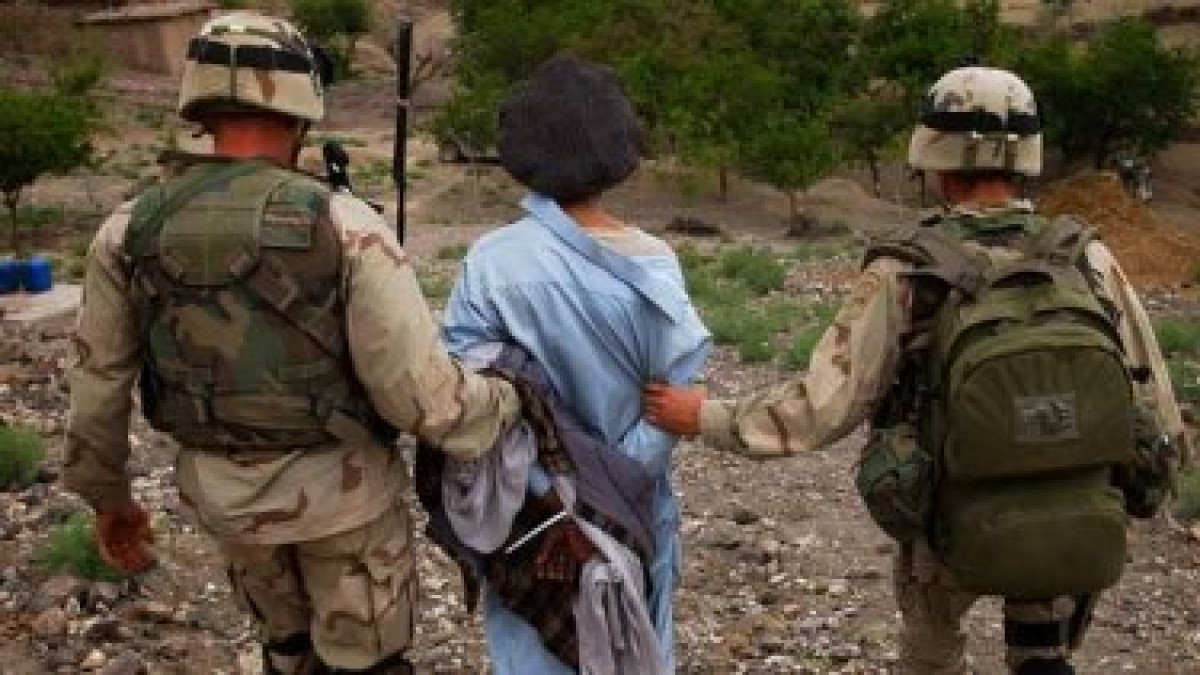 123
123
Although there is substantial and incontrovertible evidence of the torture and atrocities committed by western soldiers in Afghanistan, the United States and its allies have never been formally prosecuted for their crimes against humanity and war crimes due to political considerations and influence.
According to data obtained by a London-based NGO, roughly 3,977 people died in Afghanistan as a result of US coalition bombings between 2016 and 2020, with 1,598 of them being children. According to the Combat Costs Project at Brown University, more than 46,000 Afghan civilians have perished in the US’s longest war.
Crimes in Mivand and Panjwai
The intentional and indiscriminate killing of three Afghan civilians by five American servicemen in Maiwand, Kandahar, was one of the US heinous crimes in Afghanistan. A US military court convicted US Marines of killing three Afghan civilians and collecting body parts as war trophies in the summer of 2010. In addition, seven additional personnel were found guilty of drug-related offenses. Two of these soldiers, together with three other servicemen, were accused of killing several Afghan civilians between January and May 2010, despite the fact that the victims posed no threat to them. Another alleged crime happened again in Kandahar in 2012. At least 16 people, most of them women and children, have been slain in a shooting by US forces in the southern Afghan province of Kandahar.
The use of unconventional weapons and the mother of all bombs in Afghanistan
The Pentagon said in 2017 that it has used the world’s biggest non-nuclear bomb in Afghanistan’s Nangarhar area, a year after Donald Trump took office. The GBU-43B, also known as the “mother of all bombs,” weighs 9,800 kg and is more powerful than any other non-atomic weapon currently in use.
The weapon was tested in 2003. However, it was never used by the US military, even during the Iraq war. According to the US, the weapon was deployed to demolish rebel-dug tunnels.
Following the event, Afghan media sites like Tolou News and the Aria website stated that youngsters in Achin County, Nangarhar Province, had unusual skin conditions. Furthermore, the bomb has long-term consequences for the ecosystem in the area, lowering plant growth and fertility.
The torture of detainees and prisoners of war is barbarously
For the first time, the International Criminal Court’s(ICC) Prosecutor in The Hague investigated US forces’ war crimes in Afghanistan in November 2016. “According to early reports and inquiries, the US military and intelligence agencies tortured detainees inhumanely between 2003 and 2004,” Fatou Bensouda, a prosecutor with the International Criminal Court, said.
According to the International Criminal Court (ICC), the victims suffered “serious physical and psychological harm” as a consequence of the extended and simultaneous use of “different interrogation tactics” in the secret facilities. Additionally, many inmates were alleged to be suffering from “hallucinations, madness, insomnia, and attempted self-harm and amputation,” among other medical and psychological issues.
The Hague tribunal, on the other hand, has said that the US has refused to recognize the International Criminal Court’s (ICC) jurisdiction over US troops since the investigation into war crimes committed by US forces began. Despite US-led discussions with the Taliban, the war crimes investigation has been postponed until 2019. The US also slapped sanctions on the International Criminal Court (ICC), which was looking into US war crimes.
According to The Washington Post, the US government was finally able to drop its criminal case in Afghanistan due to political pressure in 2019, blaming the International Criminal Court’s failure to investigate its military actions in Afghanistan and threatening to deny judges visas. In reality, the families of the victims of these atrocities received no answer once the investigation was closed.
Former US President Donald Trump also pardoned US military troops accused of war crimes in Afghanistan who were facing prosecution in the US. Other atrocities perpetrated by US soldiers against Afghan citizens include the use of harsh interrogation methods such as simulated drowning, holding hostages for lengthy periods of time, denying them sleep for a week, and threatening detainees’ family members. All these crimes have gone unpunished. To be clear, American troops’ crimes in Afghanistan are not limited to these episodes, and they have a wide range of dimensions, ramifications, and outcomes. It was one of the war crimes committed by the US forces in Afghanistan. Due to its political influence at the UN and the Hague Tribunal, the US and its allies have never been prosecuted for crimes against humanity or war crimes.
Comment
Post a comment for this article